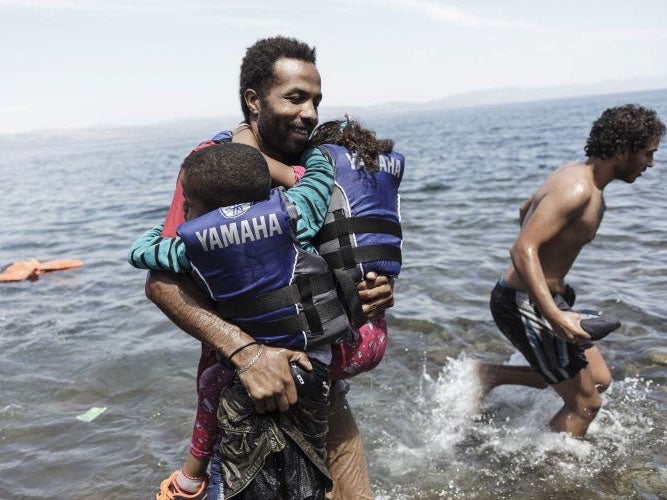EU migrant crossings reach record 107,000 for July as activists say 'tough rhetoric' has failed
Numbers of migrants have continued to rise dramatically

Your support helps us to tell the story
From reproductive rights to climate change to Big Tech, The Independent is on the ground when the story is developing. Whether it's investigating the financials of Elon Musk's pro-Trump PAC or producing our latest documentary, 'The A Word', which shines a light on the American women fighting for reproductive rights, we know how important it is to parse out the facts from the messaging.
At such a critical moment in US history, we need reporters on the ground. Your donation allows us to keep sending journalists to speak to both sides of the story.
The Independent is trusted by Americans across the entire political spectrum. And unlike many other quality news outlets, we choose not to lock Americans out of our reporting and analysis with paywalls. We believe quality journalism should be available to everyone, paid for by those who can afford it.
Your support makes all the difference.Britain’s “tough rhetoric” on the migrant crisis has failed and the Government must start taking a more active role in saving lives, activists have said, after figures showed the number of people entering the EU had hit a record high.
More than 107,000 migrants arrived at EU borders in July – the first time the number has surpassed 100,000 and triple the figure for the same month last year.
The figures, maintained by the EU border management agency Frontex, rose for a third consecutive month after the previous record of 70,000 in June.
Frontex described the migrant crisis as an “emergency situation”, and called on all EU members to “step in to support the national authorities who are taking on massive numbers of migrants at its borders”.
Where will they all go?
Leaders from across the EU agreed a plan to resettle 40,000 migrants from Italy and Greece over the next two years.
But that number hardly seems enough to cope with the almost 340,000 irregular crossings that Frontex has recorded already in 2015 – and the UK has opted out of the scheme altogether.
Amnesty International UK said the figures showed European countries “can’t avoid the biggest global refugee crisis since the Second World War”.
Refugee Programme Director Steve Symonds said: “We need to see the creation of safe and legal routes for those trying to enter Europe so they don’t have to risk drowning in the Mediterranean or being crushed under lorries at Calais.
“The UK should be playing a far more constructive part in this crisis, including by working with our EU partners to see how Britain can provide protection to some of the desperate people fleeing conflict and persecution.
“When Theresa May goes to Calais tomorrow she should drop the tough rhetoric on refugees and start talking about how the UK can save lives and protect the vulnerable.”
Where are they coming from?
Frontex said that people fleeing conflict in Syria and Afghanistan accounted for “the lion’s share” of the numbers. In July, the majority of detections were reported in the Aegean Sea, mainly on the Greek islands of Lesbos, Chios, Samos and Kos.
Greek authorities say they are planning to use a ferry currently docked at the island of Kos to transport up to 2,500 migrants to a northern port where they can continue their journey to wealthier countries.
Italy detected more than 20,000 migrants last month, bringing the total number to 90,000 so far in 2015. Nine out of every ten migrants taking the perilous journey from Libya to Italy come from Africa, mainly Eritrea and Nigeria.
In the Western Balkans, the Hungarian authorities reported more than 34,800 detections.
Join our commenting forum
Join thought-provoking conversations, follow other Independent readers and see their replies
Comments